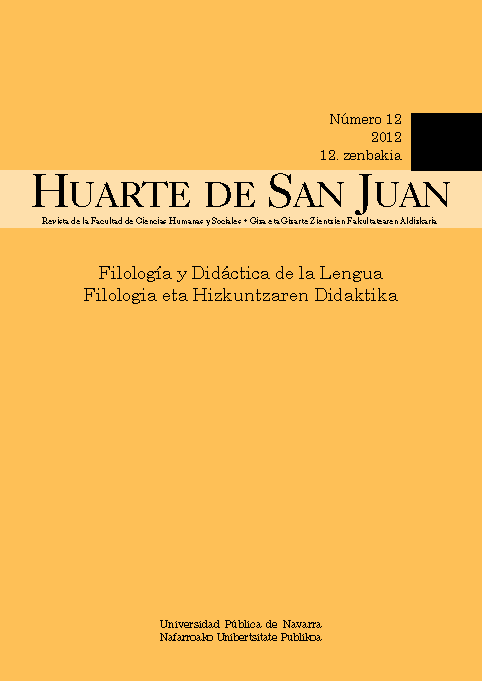La potencialidad didáctica del Word Repetition Game: ejemplo de una interacción entre estudiante y profesor
Keywords:
Repetition, prosody, correctionAbstract
This essay describes an impro task that can be adapted to the language classroom: the Word Repetition Game (Meisner, Longwell 1987). This task involves two participants sitting opposite each other who make observations in the present tense about the other’s current state (posture, clothing etc.). They may also formulate statements not based in reality. It is then the other participant’s turn to continue the conversation with new statements: he/she may simply repeat what the partner has said (changing the subject as appropriate), or may modify the nature of the statement, changing it to a question or negation, with appropriate modification to the intonation. The first speaker/sender may then, in turn, repeat the same statement(s) or, should he/she wish, formulate a new one/new ones. This article features a transcript of a conversation held between a Polish student and a teacher in an Italian FL classroom, with the corresponding translation into Spanish. We then highlight certain passages that are significant in terms of language teaching.
Downloads
References
Almond, Mark (2005): Teaching English With Drama, ELT Professional, London.
Heathfield, David (2005): Spontaneous Speaking, Peaslake, Delta.
Kao Shin-Mei, Carkin Gary, Hsu Liang-Fong (2011), “Questioning Techniques for Promoting Language Learning with Students of Limited L2 Oral Proficiency in a Drama-Oriented Language Classroom”, Research in Drama Education, 16, 4, 489-515.
Meisner Sanford, Longwell Dennis (1987): Sanford Meisner on Acting, Random House, New York.
Piazzoli, Erika (2011): “Process Drama: The Use of Affective Space to Reduce Language Anxiety in the Additional Language Classroom”, Research in Drama Education, 16, 4, 557-573.
Santipolo Matteo (2010): “Dalle regole alle regolarità: tra prescrittivismo e realismo nella didattica dell’italiano come lingua stramiera”, Officina.it, 14 [consulta: 12.8.2012].
Stinson Madonna, Winston, Joe (2011): “Drama Education and Second Language Learning: a Growing Field Practice and Research”, Research in Drama Education, 16, 4, 479-488.
Wieser Cornell, Ann (1996): The Power of Focusing, New Harbinger, New York.
Wilson, Ken (2008): Drama and Improvisation, Oxford University Press, Oxford.
Winston, Joe (2011) (ed.): Second Language Learning Through Drama, David Fulton, London.
Downloads
Published
How to Cite
Issue
Section
License
All articles are published under a Creative Commons (BY-NC-ND 4.0) license. Each article will be assigned a DOI.
Authors retain copyright of their work and grant the journal the right to the first publication. Authors can sign additional agreements to non-exclusive distribution of the published version of the article (for example, in an institutional repository) as long as appropriate attribution to the original publication is provided. Articles can be uploaded to institutional repositories immediately after publication.
Electronic distribution of the articles (for example, academic social networks or personal webpages) is allowed and encouraged.
The journal reserves the right to publicise the work in social networks and other electronic means.







